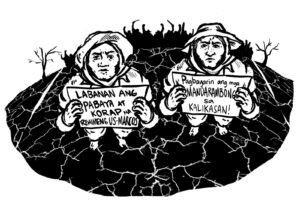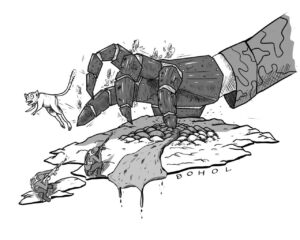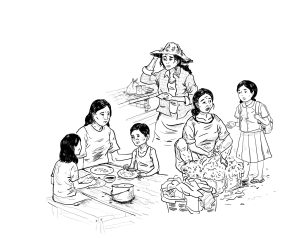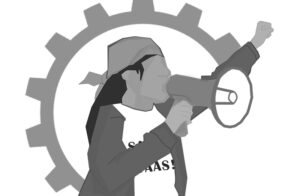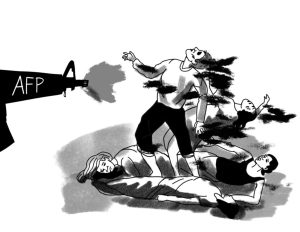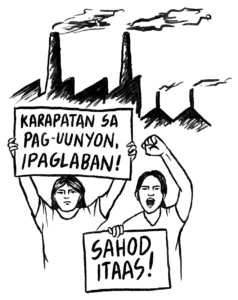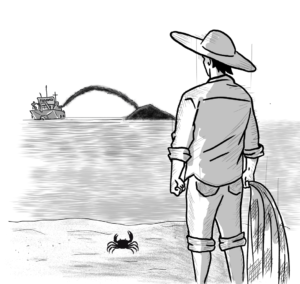Back to EDSA to fight chacha

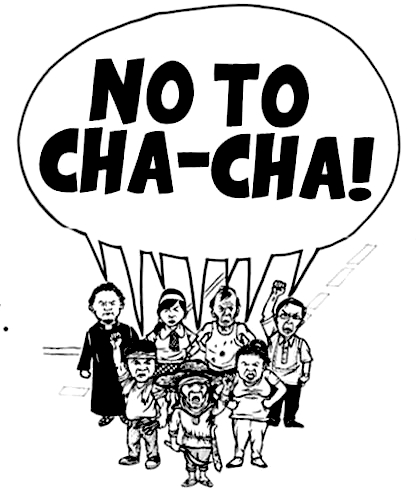
The 38th anniversary of the EDSA uprising was commemorated in various parts of the country and overseas through protests against the Marcos regime’s charter change scheme or chacha on February 25.
About 5,000 people gathered in front of the EDSA Shrine in Metro Manila under the No to Chacha Network. The groups said one of the achievements of the EDSA uprising was the 1987 Constitution, which banned political dynasties, set term limits for public officials and provided other guarantees to ensure that the state had “checks and balances.” They said this is what the Marcos regime wants to change, along with allowing 100% foreign ownership of land, key infrastructure and facilities in the Philippines.
The network also believes that instead of focusing on chacha, the government should address the people’s demands for wage increases, lower prices, better social services and so on. In its joint statement, the alliance said the chacha is “unnecessary, divisive, costly, and mainly focused on keeping those in power in place.”
On the same day, anti-chacha alliances also launched protests in the cities of Naga, Legazpi, Cebu, Bacolod, Iloilo, and Davao. Meanwhile, joint actions and studies were held in Isabela, La Union, and Sorsogon. Overseas, Filipinos conducted activities in Los Angeles, New York, and Boston in the US; in Melbourne, Sydney, Perth, and Canberra in Australia; in Hong Kong; and Canada.
Groups within the alliance organized widespread protests, gatherings and discussions before and after the commemoration.
In addition to the No to Chacha Network, broad alliances of youth and women were also formed, as well as alliances at the city and provincial levels.
Despite widespread opposition, Marcos’ henchmen continue to advance their chacha scheme. A series of hearings were held at the House of Representatives on February 27 on Resolution of Both Houses 7 (RBH7), a counterpart to the Senate’s RBH6.
According to the joint resolution, only three provisions are supposed to be amended when the Lower and Upper Houses are formed into a constituent assembly with separate voting. Foreigners will be given the right to outright ownership of public utilities (Article XII, Section 11); educational institutions (Article IX, Section 4); and advertising (Article XVI, Section 11).

